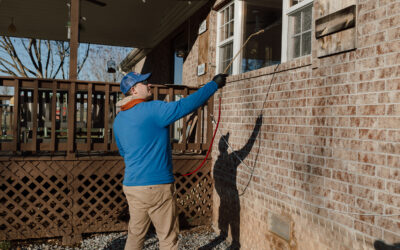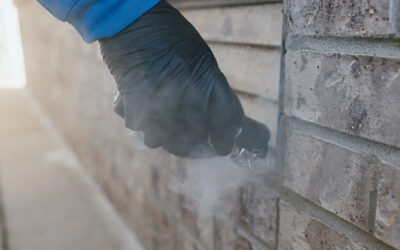
Why Store-Bought Organic Pesticides Cause More Harm Than Good
Organic pest control has become an increasingly popular choice for homeowners who want to keep their homes free from pests without using harsh chemicals.
Many people turn to store-bought organic pest control products, thinking they are a safer alternative to more traditional methods of pest control. While the name “organic” might imply something natural and nontoxic, organic pesticides can actually cause more harm than good.
They’re ineffective
The first, and largest, problem with organic pest control is that it’s ineffective. Organic products often have weaker active ingredients, and may not provide long-term solutions to pest problems.
They also most likely only function to temporarily repel pests, rather than to solve the problem of infestation.
They’re frequently misused
It’s fairly common for people to misuse organic pest control products, thinking that because they’re natural, it’s safe to use them in any amount.
However, using too much of a product, or using a product incorrectly, can be dangerous and ineffective.
They can have non-targeted effects
Organic pest control products may harm non-targeted species, like beneficial insects, birds, and mammals. This can have a negative impact on the environment, and disrupt the natural ecosystem.
Remember that, while some insects are pests, others serve a very important function. For example: spiders. While you may not enjoy running into a spider in your home, that spider is there to take care of other pests– and without them, your pest problem might just shift into another one that might be even more difficult to take care of.
Plus, organic pest control products are not necessarily safe to use around pets– which means that excessive use of a pest control product could seriously injure your pets or small children.

They’re often unregulated
Unlike synthetic pesticides, which are highly regulated, organic pest control products do not always have strict regulations regarding their production, usage, and labeling.
This means that many organic pest control products on the market may not be as safe as advertised, or that their effects have not been effectively studied.
They’re expensive
While it might be tempting to purchase organic products featuring things like peppermint oil that can temporarily repel insects, it’s important to keep in mind that the harmful effects of these products often far outweigh any of their benefits.
For example, peppermint oil is poisonous to dogs and cats.
On the other hand, professional pest control products are carefully studied and regulated. Pest control professionals are specifically trained to eliminate pest problems while keeping ecosystems intact– and keeping pets and small children safe.
Organic Vs. Professional Pest Control
Organic pest control products may harm non-targeted species, like beneficial insects, birds, and mammals. This can have a negative impact on the environment, and disrupt the natural ecosystem.
Remember that, while some insects are pests, others serve a very important function. For example: spiders. While you may not enjoy running into a spider in your home, that spider is there to take care of other pests– and without them, your pest problem might just shift into another one that might be even more difficult to take care of.
Plus, organic pest control products are not necessarily safe to use around pets– which means that excessive use of a pest control product could seriously injure your pets or small children.
Stick with the pros
At West Termite, Pest and Lawn, we work hard and treat our customers like family. That means keeping our customers safe while eliminating annoying or dangerous pest problems– allowing you to enjoy your home pest-free, the way it should be.
If you’re dealing with a pest problem, give us a call directly or reach out for a quote.
More posts from West Termite, Pest & Lawn
Pestproofing Entry Points Before Spring
As spring approaches in Arkansas, homeowners face an increased risk of pests seeking warmth, food, and shelter. Many infestations begin with small, unnoticed entry points that allow insects, rodents, and other pests to move indoors. Pestproofing your home before the...
Early Spring Termite Activity in Arkansas
As Arkansas begins to warm in early spring, homeowners may assume termites remain dormant until the summer months. In reality, spring termite colonies can become active much earlier, especially as soil temperatures rise and moisture levels increase. Subterranean and...
Preparing Your Home for Early Spring Pests
As winter fades and temperatures rise in Arkansas, homes become vulnerable to a fresh wave of early spring pests. Early spring is a critical time to take preventive action because insects, rodents, and other pests start emerging from dormancy, seeking food, warmth,...



